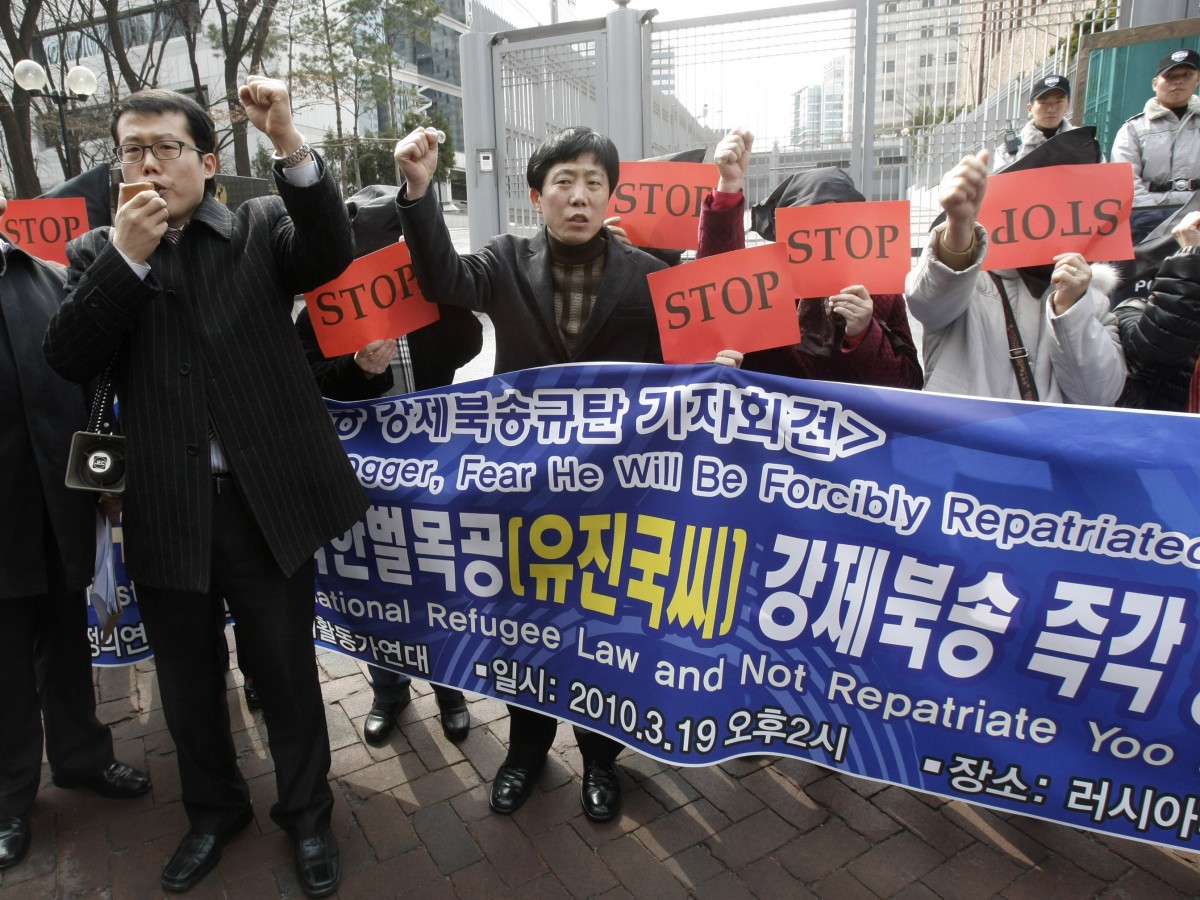
Nine North Korean refugees have been forced to return home after escaping to Laos, drawing protests from human rights groups and concern from the US.
The defectors, the oldest aged 23 and the youngest just 15, were arrested in Laos three weeks ago. They were sent to China on Monday and flown to Pyongyang the following day, reportedly accompanied by at least one North Korean official.
Human Rights Watch accused the Lao and Chinese governments of showing a «disregard for human rights» by allowing the escapees to be repatriated.
«As a result of their return they are at dire risk – North Korea criminalizes unauthorized departures and is known to torture those caught trying to escape and those sent back,» said the US-based campaign group’s deputy Asia director, Phil Robertson.
South Korea also came in for criticism for failing to intervene. Its embassy in Laos was aware of the defectors’ presence but «simply watched them be repatriated,» according to an editorial in South Korean newspaper JoongAng, translated by Agence France Presse.
Seoul has lodged a «strong protest» with the Lao government over its decision to return the group, a foreign ministry official told Yonhap news agency, adding that South Korea had asked UN agencies to help ensure the returnees’ safety.
The US State Department, meanwhile, expressed concern over the case and urged «all countries in the region to co-operate in the protection of North Korean refugees within their territories.»
Laos was previously considered a relatively safe stop on the gruelling «underground railroad» out of North Korea into neighboring countries and ultimately, South Korea.
Activists fear this case could change that. Would-be defectors will be «more intimidated about trying to come to South Korea through Laos or other Southeast Asian countries,» Kim Eun Young, an activist with the Seoul-based Citizens’ Alliance for North Korean Human Rights, told the Associated Press.
Some observers see Beijing’s influence in the Lao government’s decision to return the group.
Experts say that Laos has, over the past ten years, been transformed into a de facto satellite state of China. Beijing holds sway over the tiny, agrarian Southeast Asian state of 6 million people with its countless hydropower and natural resource investments. In short, analysts have said that China hopes to turn Laos into the «battery of Asia,» fueling its growing demand for electricity and raw materials.
Laos, in exchange, tends to follow China’s foreign policy line, which this episode has shown can include Beijing’s approach to North Korean refugees.
The Chinese government treats North Korean defectors as economic migrants rather than political refugees who fear persecution upon return to their homeland. This designation allows China to refuse asylum to North Koreans under the 1951 UN refugee convention, to which it is a signatory.
South Korean government figures show that the number of North Koreans escaping to the South fell by 44 percent in 2012 compared to a year earlier, a drop attributed to increased border controls introduced under new leader Kim Jong Un.
This article originally was published at Global Post.


